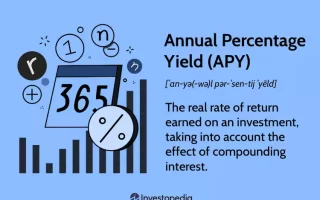More than three-quarters of U.S. adults have used a payment app, sometimes called a P2P (peer-to-peer or person-to-person) app. Widely used non-bank payment apps include PayPal, Venmo and Cash App. These apps can be used on a computer or mobile device to send money to someone without writing a check or handing over cash.
Younger people use payment apps more frequently. According to a March 2022 survey by Consumer Reports, 85% of consumers aged 18 to 29 have used one of these payment apps.

Funds stored in non-bank payment plans are generally not protected by federal deposit insurance.
Non-bank payment apps help you transfer money to and from your linked bank, credit union, or credit card accounts. They also allow you to deposit money into the app. In fact, the money you receive will usually remain in your payment app account until you connect to the app and transfer the money to your linked account.
Depositing money into a non-bank payment plan may feel the same as depositing money into a traditional bank account with deposit insurance. You can check your balance and review transactions just like you would with online banking. The difference, however, is that the funds in your application may not be held in an account at an FDIC member bank or NCUA member credit union. This means it may not offer federal deposit insurance.
The distinction is key because the money you keep in an account with a bank or credit union is insured if the bank or credit union fails. However, when a non-bank payment company fails, deposit insurance does not apply. If you think about the worst-case scenario, you might wonder: What if the payment company holding my funds fails or goes out of business?
If a payment app fails, it’s often hard to know what happens next.
Programs are set up in a variety of ways, with different business models, investment strategies, and risks. Instead of keeping your money in a bank or credit union account, your payment company may be able to invest your money in loans and bonds. The company can make money on these investments, often without paying you interest. Payment app businesses can be at risk due to investment losses, interest rate changes, exchange rates, and liquidity issues.
Your user agreement may be confusing, vague, or even unclear about where your funds are stored or invested. It may not explain whether and under what conditions your funds are insured with a bank or credit union, or what happens if the non-bank payment plan’s business fails or goes bankrupt.
In contrast, the money you deposit in an account at an insured bank or credit union is protected up to the insurance limit if the company fails. The Federal Deposit Insurance Corporation (FDIC) and the National Credit Union Administration (NCUA) protect up to $250,000 for deposits with the same owner or owners. If your bank or credit union fails, you can still get your money back quickly.
If a business on a non-bank payment plan fails, your money could be lost or you could be stuck in a lengthy bankruptcy process. You could be queued up with other lenders whose applications have failed and waiting to see if you can get your money back once the business is resolved.
Some apps offer “pass insurance” if you take the extra step
Some plans may claim to offer pass-through insurance through a business agreement with a bank or credit union for customers who sign up for additional services. For example, you may be required to get a company-branded card or opt for direct deposit. To qualify for pass-through insurance, the account must comply with certain rules and regulations set by the FDIC or NCUA.
Pass-through insurance means that you are covered if the bank or credit union where the app holds your funds goes bankrupt. It does not cover the payment software company going bankrupt. This means that if the company goes bankrupt, your funds could be lost. However, if the payment program company meets all relevant requirements, your funds may be safely held with the relevant bank or credit union. There may still be risks, though, such as slowing down your ability to access your money.
What the CFPB is doing
We take steps to help you identify risks and address issues related to leaving money in payment apps:
- Question Spotlight – See a summary of popular payment options and whether your funds are protected
- Ask the CFPB – Get clear, unbiased answers to common money questions, including Is the money I keep in my payment apps safe?
- If you have a problem with a financial product or service, including having trouble transferring money from an app, file a complaint with the CFPB.



